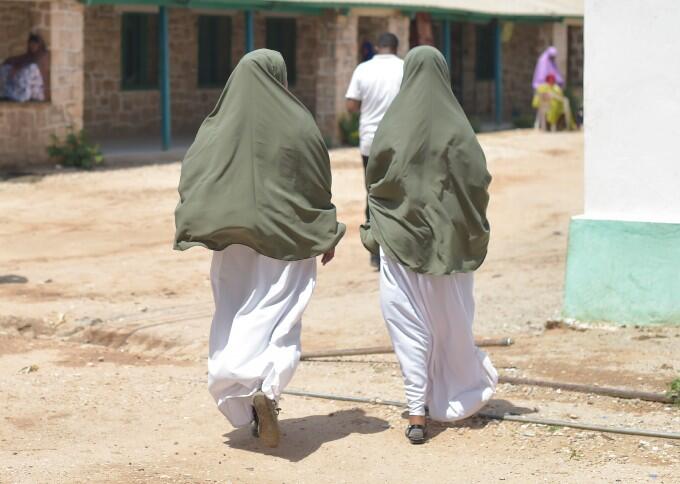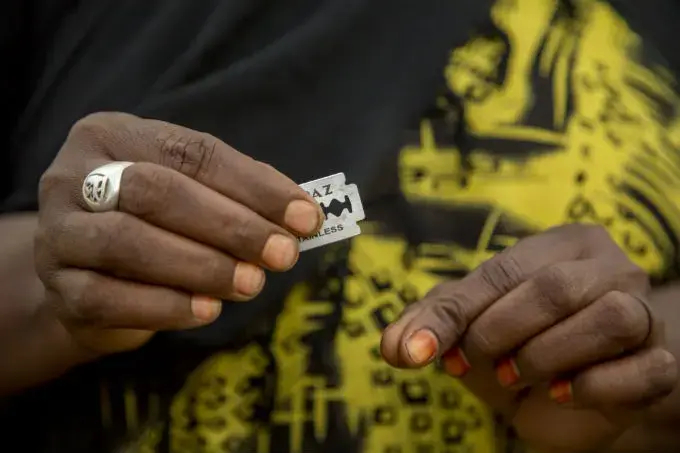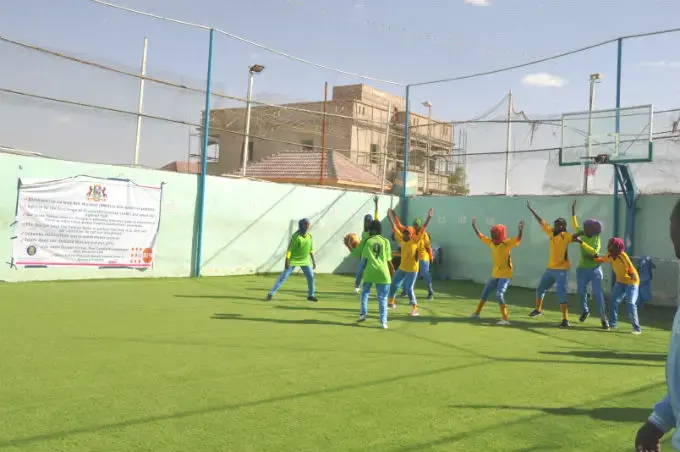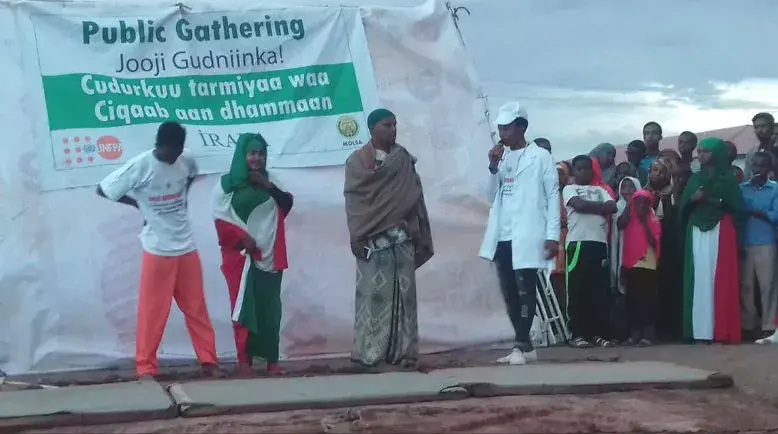Maryan Mudey Abukar, 19, from Hudur, Bakool region underwent female genital mutilation (FGM) when she was just six years old. She was married at the tender age of 16. “I bled a lot on my wedding night when I first slept with my husband. I was in so much pain that I wished for death,” says Maryan. She went through the worst type of FGM, also known as infibulation, or type III FGM.
According to UNFPA, infibulation creates a physical barrier to sexual intercourse and childbirth. This type of FGM may cause complete vaginal obstruction resulting in the accumulation of menstrual flow in the vagina and uterus. An infibulated woman, therefore, has to undergo gradual dilation of the vaginal opening before sexual intercourse can take place. Often, infibulated women are cut open on the first night of marriage, by the husband or a circumciser, to enable the husband to be intimate with his wife.
Maryan says she immediately got pregnant and that too brought more problems. “There was no passage for the baby to come out when I was in labour, and the midwives had to cut me again,” says Maryan.
At childbirth, many women also have to be cut again because the vaginal opening is too small to allow for the passage of a baby. Infibulation is also linked to menstrual and urination disorders, recurrent bladder and urinary tract infections, fistulae and infertility.
Maryan says she only survived the labour because she had qualified midwives taking care of her.
“FGM brings nothing but misery. It has no benefits,” says Maryan.
Amina Ahmed, 18, lives in Adado and just like Maryan also underwent FGM. “I was circumcised when I was 11 years old. I had been refusing to go through the procedure in my earlier years as I had seen many girls suffering intense pain after going through FGM,” says Amina.
She says she gave in after being pressured by her mother and other women within her community. “I nearly died from heavy bleeding soon after the procedure. It also took over a month for my wounds to heal because I wasn’t given any medicine,” Amina narrates.
She says she went through a depression and had anxiety episodes. “I felt like my whole body was cut into pieces. I still have such feelings even now; it is tragic,” says Amina.
UNFPA Somalia is providing technical and financial support to the Somalia Women Journalist Rights Association (SOWJRA) to promote the campaign to end FGM.
Somalia is one of the countries in the world with the highest prevalence of FGM. The recently-launched Somali Health and Demographic Survey (SHDS) indicates a prevalence of 99 percent among women and girls aged 15 to 49 years. The country continues to lack a critical legislative framework to end FGM due to weak political will and the lack of consensus among key religious groups for zero tolerance for FGM.
“To promote the abandonment of FGM, coordinated and systematic efforts are needed. We’re engaging whole communities with a focus on human rights and gender equality. Journalists are key in disseminating messages on the dangers of this harmful cultural practice,” says UNFPA Somalia Youth Specialist Fatuma Muhumed.
SOWJAR members indicate that FGM is even more prevalent in rural areas and that it is widespread and deeply entrenched with many girls still being subjected to the most severe form of FGM. Despite the negative serious health consequences and efforts to abandon the practice, it has persisted due to a common belief that it is a religious obligation and that not carrying out FGM will unleash the anger of God on them and that uncut women are not spiritually clean, and they cannot pray. Uncut women are generally seen as unpurified Muslims.
“As Somali women journalists we believe that FGM requires not just the end of a single, social norm, but much wider, more fundamental, social change,” says the chairperson of SOWJAR Laylo Cadceed.
She says a holistic and inclusive approach is needed to build the enabling environment and promote engagement of key stakeholders among them communities in the south and central regions of Somalia where the number of FGM cases reported are huge compared to other parts of the country.
“It is also necessary to reduce the prevalence of the practice through awareness, advocacy and supportive legislative and policy actions,” says Cadceed.
SOWJAR has been carrying out grassroots campaigns to support community-driven actions against FGM in Bay, Bakool, Lower and Middle Shabelle Regions.
“We’re prioritizing an anti-FGM intervention which specifically targets cutters by providing income generation initiatives to establish new livelihoods for them to discontinue the harmful practice.
UNFPA Somalia Representative Anders Thomsen says girls in Somalia, forced to stay at home due to COVID-19, are now undergoing FGM in their homes.
“COVID-19 could have a far-reaching impact on the effort to end FGM, with a potential 2 million FGM cases occurring over the next decade that could have otherwise been averted,” says Thomsen.
Current UNFPA estimates indicate that 290,000 girls will be cut in Somalia in 2020 following the COVID-19 lockdowns and restrictions.
“UNFPA calls for the speedy passage of the Sexual Offences Bill and FGM Bill in Somalia. These are vital in preventing and criminalizing all sexual offences and eradicating FGM,” says Thomsen.
---Pilirani Semu-Banda





